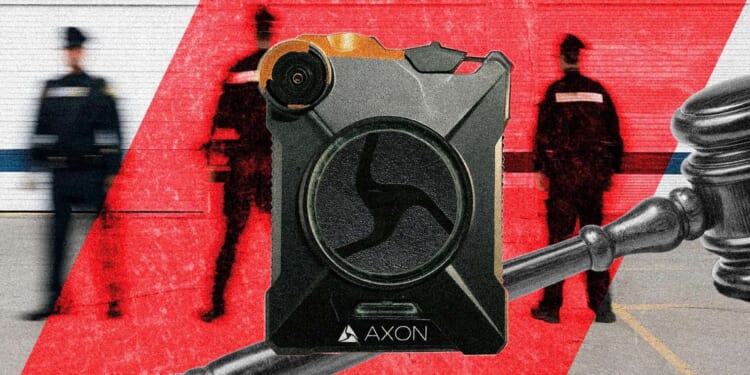As “Operation Midway Blitz” rages on and federal officers clash with protestors in the streets of Chicago, the same federal agencies are duking it out with judges in federal courtrooms.
On Thursday, United States District Judge Sara L. Ellis of the Northern District of Illinois expressed plans to expand a temporary restraining order and demand that federal agents use body cameras while operating in Operation Midway Blitz. “I am profoundly concerned about what has been happening over the last week,” Ellis said, according to the Chicago Sun-Times‘ Jon Seidel. “I live in Chicago, if folks haven’t noticed. And I’m not blind.…I tend to get news.”
Thursday’s court hearing was held just one week after Ellis issued a temporary restraining order to limit immigration officers’ use of non-lethal weapons on civilians. The order was made after a lawsuit accused federal immigration agents of “extreme brutality” meant to “silence the press and civilians” at immigration enforcement protests. The complaint outlines instances of agents assaulting journalists and protestors with “guns loaded with pepper balls, paintballs, and rubber bullets,” “tackl[ing] and slamm[ing] people to the ground,” and using flash grenades and tear gas indiscriminately and without warning. Following Ellis’ order from last week, federal agents are, in part, prohibited from threatening journalists, using riot control weapons on protestors absent an immediate threat to law enforcement, and must issue crowd dispersal warnings.
But after seeing reports of the ongoing use of non-lethal weapons, Ellis told a Justice Department lawyer on Monday that she wanted answers to “why [she is] seeing images of tear gas being deployed and reading reports that there were no warnings given” in violation of her previous order.
Sean Skedzielewski, the Justice Department lawyer, responded to Ellis that “the reporting is just inaccurate” and “selectively edited,” per Seidel. But that’s the very reason why, according to Ellis, body camera footage is needed. Ellis signaled that she would modify her order to require “all agents who are operating in Operation Midway blitz to wear body-worn cameras, and they are to be turned on.”
Skedzielewski pushed back, arguing that implementing a body camera policy would prove difficult, according to The New York Times. But Ellis said she had no problem “with the government enforcing federal law,” reports the Times. “What I do have a problem with,” she continued, “is if we have allegations that government agents are enforcing the law in a way that violates the Constitution.”
“Don’t violate the Constitution, and we never have to pull any video from anybody, ever,” she added.
While details of a body camera modification to the order are being discussed, Assistant Secretary of Homeland Security Tricia McLaughlin told the Times on Thursday, “there is currently no order requiring body cameras, and any suggestion to the contrary is false reporting,” and insinuated that an order of that kind would be “an extreme act of judicial activism.”
News of the potential modification comes as the Trump administration faces increased limitations imposed by federal courts on its mass deportation efforts in Illinois. Last week, a federal judge in the Northern District of Illinois extended a consent decree designed to enforce limitations on warrantless arrests made by Immigration and Customs Enforcement agents. The same judge also ruled that administrative warrants signed in the field—meant to circumvent the need for probable cause—were invalid.
And on Thursday evening, the same day Ellis demanded immigration officers wear body cameras, the U.S. Court of Appeals for the 7th Circuit upheld a federal district court’s decision to bar the deployment of U.S. National Guard troops within Illinois.
In response, the Trump administration claims that these court rulings set unconstitutional limits on federal power, which comes as no surprise given President Donald Trump believes that when it comes to fighting crime, he has “the right to do anything [he] wants to do.” Of course, the whole point of the Constitution and Bill of Rights is to limit and check concentrated government power, something the courts understand a lot better than Trump.

















